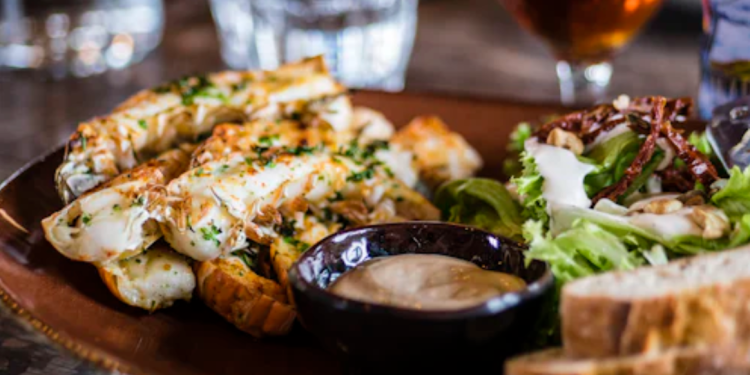Introduction
In today’s fast-paced world, maintaining a healthy diet can be challenging, especially for those with busy lifestyles. However, with a little planning and preparation, it’s possible to enjoy nutritious and delicious meals throughout the week. This guide will explore the benefits of meal prep and provide practical tips and recipes to help you stay on track with your health goals.
Benefits of Meal Prep
Meal prep offers numerous benefits for individuals looking to maintain a healthy lifestyle. Firstly, it saves time by reducing the need for daily meal preparation. With meals prepped in advance, you can simply grab and go, eliminating the stress of deciding what to eat each day. Additionally, meal prep can be cost-effective, as buying ingredients in bulk and cooking in larger quantities often leads to savings. Furthermore, portion control is easier with meal prep, allowing you to portion out balanced meals and avoid overeating.
Getting Started with Meal Prep
The key to successful meal prep is planning. Start by deciding which meals you’d like to prepare for the week ahead, taking into account your schedule and dietary preferences. Once you have your meal plan in place, create a shopping list and gather all the ingredients you’ll need. Set aside dedicated time for meal prep each week, whether it’s a few hours on the weekend or a weeknight after work.
Essential Meal Prep Tools
Investing in the right tools can make meal prep much more efficient. Stock your kitchen with quality storage containers in various sizes to store prepped ingredients and meals. Consider purchasing meal prep containers with compartments to keep different components separate. Additionally, kitchen gadgets like slow cookers and Instant Pots can be invaluable for batch cooking proteins and grains.
Healthy Meal Prep Tips
When it comes to meal prep, simplicity is key. Focus on preparing versatile ingredients that can be used in multiple meals throughout the week. Batch cooking proteins like chicken, fish, or tofu, and grains like quinoa or brown rice, can save time and ensure you have nutritious options on hand. Pre-cutting vegetables and fruits makes it easier to incorporate them into meals and snacks. Aim for variety and balance in your meal prep, incorporating a mix of lean proteins, whole grains, and colorful fruits and vegetables.
Simple and Healthy Meal Prep Recipes
Here are a few easy and nutritious meal prep recipes to get you started:
- Breakfast: Overnight Oats
- Combine rolled oats, almond milk, chia seeds, and your favorite toppings like berries and nuts in a jar. Refrigerate overnight, and enjoy a quick and satisfying breakfast in the morning.
- Lunch: Quinoa Salad
- Cook quinoa according to package instructions and let cool. Toss with diced vegetables like bell peppers, cucumbers, and cherry tomatoes, and add protein like chickpeas or grilled chicken. Dress with lemon vinaigrette and store in meal prep containers for easy lunches.
- Dinner: Sheet Pan Chicken and Vegetables
- Place seasoned chicken breasts on a baking sheet alongside a variety of chopped vegetables like broccoli, carrots, and bell peppers. Drizzle with olive oil and roast in the oven until chicken is cooked through and vegetables are tender. Divide into meal prep containers for convenient dinners throughout the week.
Incorporating Snacks into Meal Prep
Don’t forget to prep healthy snacks to keep you fueled between meals. Opt for nutrient-dense options like cut-up veggies with hummus, Greek yogurt with fruit and nuts, or homemade energy bars. Pre-portion snacks into individual containers or bags for easy grab-and-go convenience.
Storing and Reheating Meals
Proper storage is essential for maintaining the freshness and safety of prepped meals. Store cooked meals in airtight containers in the refrigerator for up to four days or freeze for longer-term storage. When reheating meals, use safe methods like microwaving or oven reheating to ensure they are heated through to the proper temperature.
Meal Prep for Special Diets
Meal prep can be adapted to accommodate various dietary preferences and restrictions. For those following vegan or vegetarian diets, focus on plant-based proteins like beans, lentils, and tofu, and incorporate plenty of fruits and vegetables. Individuals following gluten-free diets can enjoy naturally gluten-free grains like quinoa, brown rice, and oats. For those on keto diets, prioritize low-carb, high-fat options like fatty fish, avocados, and nuts.
Staying Motivated with Meal Prep
To stay motivated with meal prep, track your progress and celebrate your successes along the way. Keep a meal prep journal to note which recipes you enjoyed and any adjustments you’d like to make for next time. Consider finding a meal prep buddy to share tips, recipes, and encouragement with. Remember, consistency is key, and every meal prep effort brings you one step closer to achieving your health goals.
Conclusion
Healthy meal prep is a valuable tool for individuals with busy lifestyles looking to maintain a nutritious diet. By planning ahead, investing in essential tools, and following simple meal prep tips and recipes, you can streamline your mealtime routine and set yourself up for success. Whether you’re aiming to save time, money, or simply eat healthier, meal prep is a practical and sustainable strategy for achieving your health and wellness goals.

FAQs
1. Can I meal prep if I have dietary restrictions or food allergies?
- Absolutely! Meal prep can be tailored to accommodate various dietary preferences and restrictions. Focus on recipes and ingredients that align with your specific needs and preferences.
2. How long can I store prepped meals in the refrigerator or freezer?
- Cooked meals can typically be stored in the refrigerator for up to four days or frozen for longer-term storage. Be sure to properly label and date containers for easy identification.
3. Is meal prep expensive?
- Meal prep can actually save you money in the long run by reducing food waste and the need for dining out. Buying ingredients in bulk and cooking in larger quantities can help stretch your food budget.
4. How can I prevent meal prep burnout?
- Keep things interesting by trying out new recipes, flavors, and cuisines. Get creative with your meal prep containers and presentation to keep things fresh and exciting.
5. Can I meal prep if I have a busy schedule?
- Absolutely! In fact, meal prep is especially beneficial for individuals with busy lifestyles. Set aside dedicated time each week for meal planning, shopping, and prep to ensure you stay on track with your health goals.




